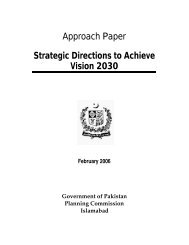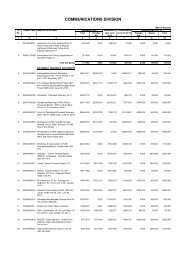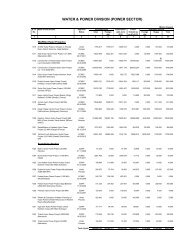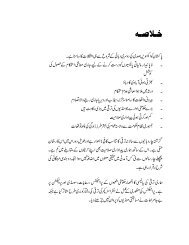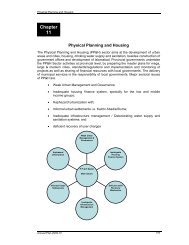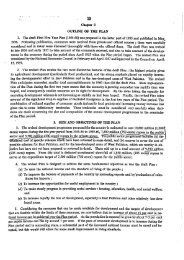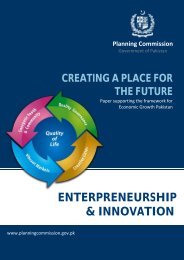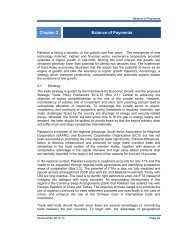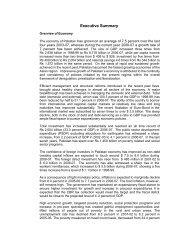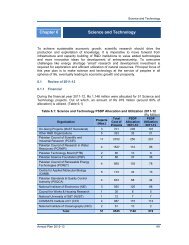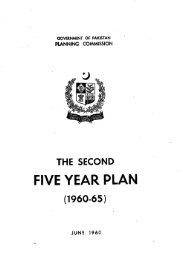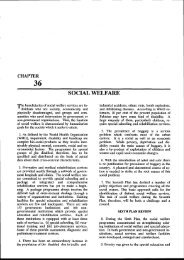Framework for Economic Growth, Pakistan - Planning Commission
Framework for Economic Growth, Pakistan - Planning Commission
Framework for Economic Growth, Pakistan - Planning Commission
You also want an ePaper? Increase the reach of your titles
YUMPU automatically turns print PDFs into web optimized ePapers that Google loves.
International conference on “<strong>Framework</strong> <strong>for</strong> <strong>Economic</strong> <strong>Growth</strong>, <strong>Pakistan</strong>”which is a reality. But in fact the case is notthe same as it look like.Prosperous markets create prosperous firms.We don’t develop prosperity in the ruralareas. Connection of prosperity betweencities and rural areas is very simple. A proruralpolicy is required <strong>for</strong> a growingcountry like <strong>Pakistan</strong> to bring prosperity.***Discussant: Dr. Nuzhat AhmadDirector, AERCI want to discuss about public housing inwhich the role of the government can be tosubsidize development in the housing sector.In terms of financial decentralizationchanges are made in the 18 th Amendment.Capacity development in city managementis another important area to focus.For cities like Lahore and Islamabad wehave the data available but the data is notavailable about most of the cities, especiallysmall and medium sized cities. Whilemaking the growth strategy the federalgovernment need to consult the cities thatwhat priorities they have in their mind <strong>for</strong>their city. Major stakeholders should beconsulted <strong>for</strong> the feedback <strong>for</strong> the urbandevelopment strategies. For countries like<strong>Pakistan</strong> an important question comes tomind is that what we are going to do <strong>for</strong> therural areas in strategy development? Citiesshould be taken as clusters with surroundingareas included into it. Clusters need to bestudied while making city planning. In alatest research project we are studyingcomparative advantages of various cities,their competitiveness, supportinginfrastructure, overall environment, skills insurroundings etc. Important question to beasked is that why cities are different fromeach other. Why Sialkot, Karachi andIslamabad are different. We have startedconsultation with industry focus groups,business leaders etc. to know about specificclusters there, their competitive advantagesand make development plans <strong>for</strong> specificcity clusters.ADB has conducted studies in Delhi, Dhakaand Colombo to identify special industrialclusters. They found what is lacking inspecific clusters in various cities. We arestudying the important areas identified inADB’s study and trying to apply thatknowledge in some of the selected cities in<strong>Pakistan</strong>.***Special Comments FromRafeh Alam (from Lahore)First of all I want to congratulate DeputyChairman <strong>Planning</strong> <strong>Commission</strong> <strong>for</strong>arranging such a successful conference. Iwant to read out five short points which Ihave prepared about our cities.I would like to react first to the commentmade about Islamabad that indeed it is notthe best city in <strong>Pakistan</strong>. It has slums aroundbecause of the failure in urban planning,misallocation of resources and misalignmentof priorities. Islamabad has no water (like in53



